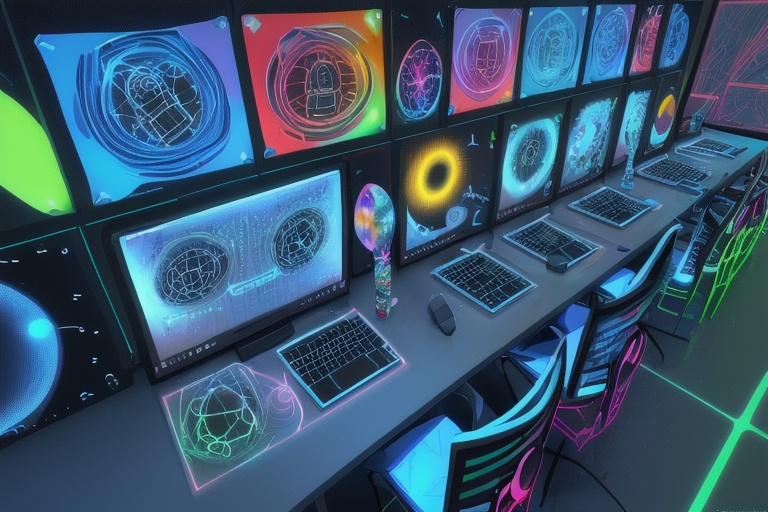Artificial intelligence (AI) and machine learning (ML) are rapidly changing the landscape of how we interact with technology and conduct our daily lives. However, the wave of automation brought about by these advancements has prompted varying levels of concern regarding the future of human employment. While innumerable tasks may be dwindling beneath the mechanical hands of AI, certain professions stand firmly resilient, bolstered by the irreplaceable essence of human judgement and interaction.
Artificial intelligence (AI) and machine learning (ML) are rapidly changing the landscape of how we interact with technology and conduct our daily lives. However, the wave of automation brought about by these advancements has prompted varying levels of concern regarding the future of human employment. While innumerable tasks may be dwindling beneath the mechanical hands of AI, certain professions stand firmly resilient, bolstered by the irreplaceable essence of human judgement and interaction.
Professions with a Human Essence
Among the collective that seems to maintain a steadfast resistance to the oncoming tide of automation are roles deeply rooted in the humanities and personal interaction. Venture Smarter, a small business consultancy, has highlighted ten professions widely regarded as less susceptible to AI substitution in the foreseeable future. These encompass:
- Artists and Performers
- Therapists and Counselors
- Medical Professionals
- Social Workers and Community Workers
- Carers
- Teachers
- Entrepreneurs
- Managers
- Skilled Tradespeople
- Lawyers and Judges
Each of these roles intrinsically involves elements such as emotional intelligence, creativity, hands-on expertise, and interpersonal skills. These facets are currently beyond the scope of AI's capabilities.
Understanding the AI Resistant Professions
Artists and Performers:Art and performance are spheres burgeoning with creativity and personal expression. They are innately human pursuits that communicate through the nuanced language of emotion, perspective, and cultural commentary. The subjective interpretation necessary in these fields is a unique human trait that AI, with its present limitations on creativity and understanding, cannot replicate.
Therapists and Counselors:The fields of therapy and counseling are found at the intersection of science and human interaction. Empathy plays a significant role here, with practitioners needing to build trust and understand complex emotional conditions, something that AI cannot yet match.
Medical Professionals:Medicine, although a science, demands a degree of empathetic communication and decision-making underpinned by years of specialized training. AI can certainly augment the capabilities of medical experts but cannot substitute the nuanced judgments and patient interactions that remain in the domain of human doctors and nurses.
Social Workers and Community Workers:These professionals thrive through their deep understanding of sociocultural dynamics and their ability to foster connections within communities. They navigate sensitive and multifaceted situations that require a personalized touch.
Carers:Caregiving demands patience, emotional support, and physical assistance, all of which necessitate a level of human interaction that AI cannot realistically offer.
Teachers:While educational content can be delivered through AI, the motivational and adaptive nature of human teachers in guiding, mentoring, and inspiring students is irreplaceable. Teaching is not just about disseminating information—it's about nurturing potential.
Entrepreneurs:The entrepreneurial spirit is driven by innovation, risk-taking, and strategic decision-making. These attributes are integrally tied to human intuition, adaptability, and the willingness to traverse uncharted territories.
Managers:Leadership and management revolve around motivating teams, strategic planning, and nuanced decision-making, heavily reliant on social skills and human insight.
Skilled Tradespeople:Many trades require dexterity, on-the-spot problem-solving, and craftsmanship that come from years of hands-on experience and are hard for AI to mimic.
Lawyers and Judges:The legal profession thrives on argumentation, negotiation, ethical judgment, and an understanding of complex human contexts—areas where AI's logical processing encounters limitations.
Embracing AI Assistance Without Surrender
It is critical to differentiate between replacement and augmentation when discussing AI’s role. AI systems can automate repetitive tasks within these professions, thereby freeing up humans to focus on aspects of their roles that require a distinctly human touch. Data-driven insights provided by AI can lead to informed decisions, but they do not negate the indispensable value of professional discretion and human empathy.
Conclusion: The Interplay Between AI and Human Ingenuity
As AI continues its relentless march forward, it becomes increasingly imperative to acknowledge not only its potential to revolutionize our world but also the inherent qualities that it cannot supplant. The professions listed act as a testament to human resilience and underline the indispensable value humans add to work that AI cannot entirely encroach upon. By celebrating these roles, we highlight the strengths of human capability and reaffirm our place alongside AI in driving progress.
In embracing the potential of AI, it is vital to recognize that the future will likely be shaped by a collaboration between human intelligence and artificial intelligence, rather than a competition. It is within this synergy that the true potential of both AI and human professionalism will be fully realized, ensuring a balanced approach as we navigate the intricacies of a rapidly evolving technological landscape.
Information for this article was gathered from the following source.




